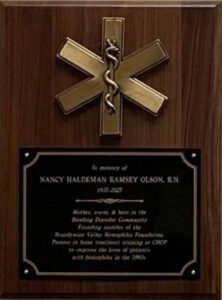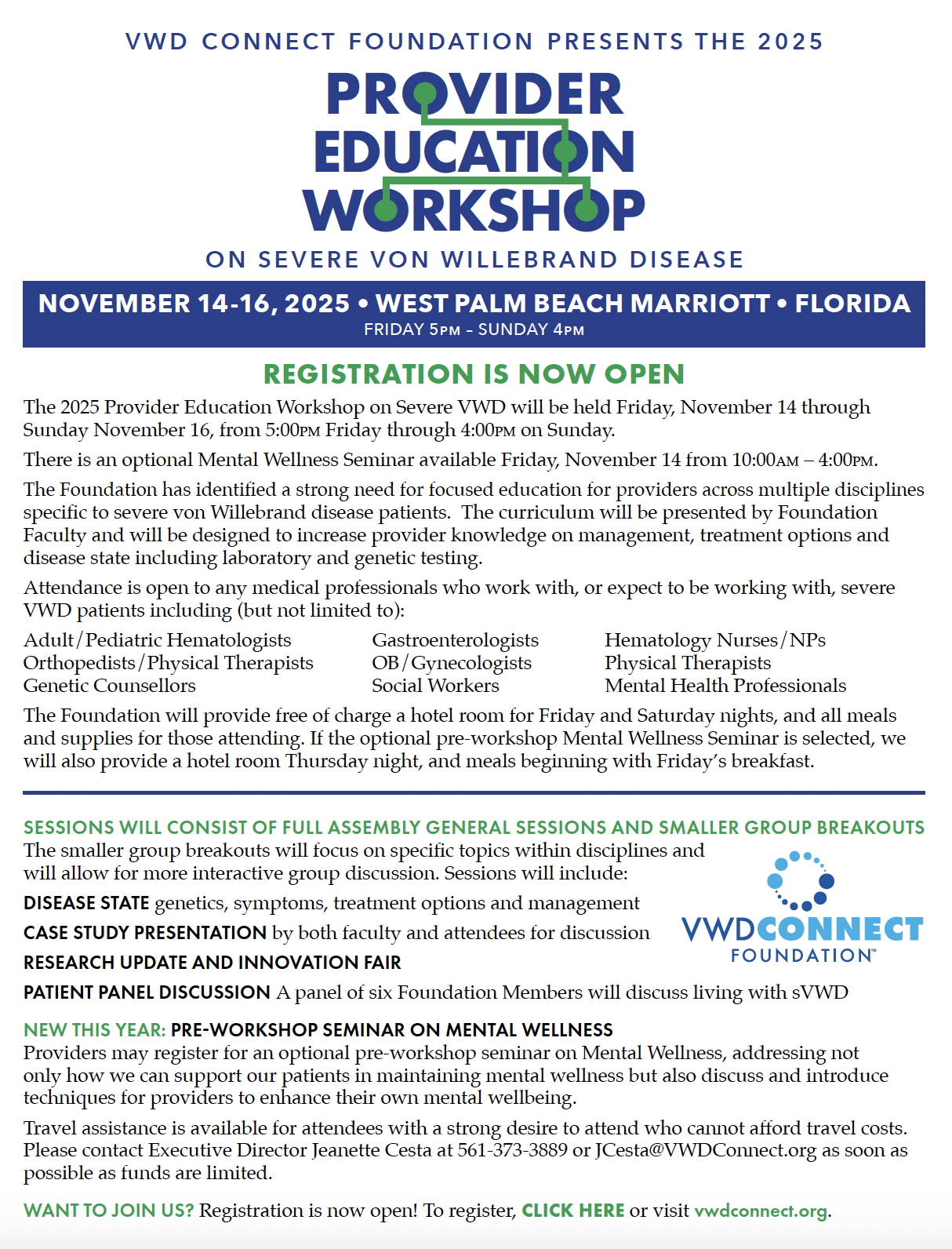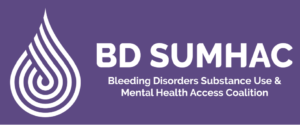In This Issue...
Jeff Weighs In
Member and Community Relations Update
Welcoming New Faces to the MCR Team
by Heidi Lane, Senior VP of Administration & Operations
We’re pleased to announce our MCR team is growing! Ashley Castello and Jazzmine Brown will be joining us on September 1st, followed by Kelly Waters on September 15th. These new additions reflect both expansion and transition within the team—one new position, one to succeed Jeff Amond, who recently left the Alliance, and one to follow Mark Plencner, who will be retiring in January of 2026.
As we welcome our new colleagues, we want to take a moment to express our deep appreciation for Jeff and Mark. Jeff’s work and commitment to the Alliance are sincerely appreciated. Jeff began his career in hemophilia in 2004 as the Psychosocial Specialist for the American Red Cross Badger Center for Bleeding Disorders, later transitioning to the University of Wisconsin Hospital & Clinics in 2005. For nearly two decades, he served as the program’s Clinical Social Worker, while also managing key aspects of their 340B Program, including insurance and reimbursement operations. His deep expertise in payer relations, prior authorizations, and patient advocacy has been invaluable to the bleeding disorders community. Mark’s upcoming retirement marks the close of a remarkable chapter of dedication to the bleeding disorders community, and his contributions have left a lasting legacy. Before joining the Hemophilia Alliance in 2017, Mark spent 21 years as pharmacy manager at the Roger Maris Cancer Center/North Dakota Hemostasis and Thrombosis Treatment Center, where he developed the institution’s first 340B program. He also served in key leadership roles, including President of the Hemophilia Alliance GPO and Board Chair of both the Alliance and The Alliance Pharmacy. We are grateful for Mark’s years of service and wish him all the best as he prepares for retirement.
With gratitude for Jeff and Mark’s contributions, we now turn to the future and introduce three outstanding new members of the MCR team.
Ashley Castello
 Ashley has been involved with the hemophilia community since 2016 when her youngest son was diagnosed with Severe Hemophilia A at birth. She became involved in the local chapter, eventually becoming the Executive Director of the Louisiana Hemophilia Foundation (LHF) in 2021. As Executive Director of LHF, Ashley was dedicated to continuously evolving and improving the organization and ensuring that the bleeding disorders community had a thriving chapter with many opportunities for education and fellowship.
Ashley has been involved with the hemophilia community since 2016 when her youngest son was diagnosed with Severe Hemophilia A at birth. She became involved in the local chapter, eventually becoming the Executive Director of the Louisiana Hemophilia Foundation (LHF) in 2021. As Executive Director of LHF, Ashley was dedicated to continuously evolving and improving the organization and ensuring that the bleeding disorders community had a thriving chapter with many opportunities for education and fellowship.
In 2024, she accepted a position as Patient Liaison at Optum Pharmacy, communicating with patients about their care needs and interacting with the community at chapter events in a six-state territory. Prior to her work in hemophilia, Ashley served as an educator in the East Baton Rouge Parish School System for sixteen years. She has a bachelor’s degree in Elementary Education and a master’s degree in Counseling, both from Louisiana State University.
Ashley resides in her hometown of Baton Rouge, Louisiana with her husband of 18 years – Casey, their two sons – Leo and Max, two dogs – Nova and Biscuit, and three ducks – Rosie, Mellow, and Nibbles.
Jazzmine Brown
 Jazzmine began her career with the bleeding disorder community in 2019 at Hemophilia of Georgia. She spent many years as an Outreach Social Worker prior to shifting focus in 2024 to revenue cycle and payer relations as a Payer Relations Account Manager. Jazzmine has a history of maximizing 340B programming to navigate complex care and access to medication issues both clinically in the homes of individuals and their families, as well as operationally with focus on program development, revenue growth, and contract management. Jazzmine consistently seeks opportunities to marry her passions by prioritizing and advocating for the needs of bleeding disorder patients while balancing organizational demands.
Jazzmine began her career with the bleeding disorder community in 2019 at Hemophilia of Georgia. She spent many years as an Outreach Social Worker prior to shifting focus in 2024 to revenue cycle and payer relations as a Payer Relations Account Manager. Jazzmine has a history of maximizing 340B programming to navigate complex care and access to medication issues both clinically in the homes of individuals and their families, as well as operationally with focus on program development, revenue growth, and contract management. Jazzmine consistently seeks opportunities to marry her passions by prioritizing and advocating for the needs of bleeding disorder patients while balancing organizational demands.
Jazzmine first attended Georgia State University as an undergraduate, continuing to The University of Alabama for completion of her master’s in social work in 2019, then followed by a master’s in business administration in 2023 from Capella University. Jazzmine maintains her clinical license in social work and is a Certified Patient Account Representative.
Jazzmine lives in Atlanta with her husband (Branden) and her sweet pup (Ahsoka). Outside of work, Jazzmine loves being an aunt, taking Pilates classes, attending concerts, and lunching with friends and family whenever possible.
Kelly Waters
 For 30 years, Kelly has dedicated her career to healthcare and nonprofit leadership, with a passion for improving lives and strengthening communities. From 2006 to 2025, she served as Executive Director of the Virginia Hemophilia Foundation, guiding strategic growth, fundraising, community outreach, and advocacy. Her earlier work in oncology social work, palliative care, and statewide quality improvement gave her a deep understanding of patient care, program development, and stakeholder collaboration.
For 30 years, Kelly has dedicated her career to healthcare and nonprofit leadership, with a passion for improving lives and strengthening communities. From 2006 to 2025, she served as Executive Director of the Virginia Hemophilia Foundation, guiding strategic growth, fundraising, community outreach, and advocacy. Her earlier work in oncology social work, palliative care, and statewide quality improvement gave her a deep understanding of patient care, program development, and stakeholder collaboration.
Kelly earned her Master of Social Work from the University of North Carolina at Chapel Hill, her Bachelor of Science in Psychology from James Madison University, and a Certificate in Nonprofit Management from Duke University. She and her husband live in Richmond, VA, where they enjoy playing fetch with their dog, cheering on their high school senior on the basketball court, and hearing about the adventures of their older son, who serves in the U.S. Air Force.
We look forward to the exciting contributions ahead and remain grateful for the lasting impact of those who helped shape our team.
Role of the Member and Community Relations Team
by the MCR Team
Since the introduction of the Member and Community Relations (MCR) Team several years ago, the bleeding disorders community has faced significant changes in clinical options, payment models, and market disruptors. We wanted to take this opportunity to remind you of the role of MCRs in assisting your HTC in navigating these changes. Your Primary MCR contact can be compared to the Nurse Triage role at your HTC. As the first point of contact for Hemophilia Alliance communications, your primary MCR contact can triage your questions, issues and assess next steps and for strategic discussions and planning for your HTC sustainability. We are a small but mighty team that quickly pulls in other team members to provide guidance and/or resolution. Notify your MCR contact as soon as an issue arises. Early intervention will help us better address issues in a timely manner. If you are running into an issue, it is likely that another HTC is running into a similar issue.
Some examples of areas we can help with:
Payer:
- Did you hear about a new policy change for a payer in your area?
- Were you contacted about a Medicare audit?
- Are you not getting paid by a certain payer?
- Do you continue to lose patients to specialty pharmacy networks you’ve been carved out of?
- Have you had patient access to care issues as the result of a plan or employer adopting an Alternative Funding Program (AFP)?
- Do you need help locating a contact with a particular payer?
- Do you need help setting up a Letter of Agreement (LOA) or Single Case Agreement (SCA)?
Operational:
- We want to build our own pharmacy, where do we start?
- We want to evaluate our organization, clinics and supports; can you connect me with other HTCs that might look similar.
- Setting up and reviewing contract pharmacy arrangements.
- Understanding the different types of contract pharmacy agreements (i.e. reference based versus non-referenced based).
- We are planning our Strategic Planning Meeting, how can we assist?
GPO:
- How to maximize GPO Savings.
- Setting up accounts to receive the Hemophilia Alliance GPO contracted price.
- How do we access Desmopressin Nasal Spray (DDAVP NS)?
Advocacy:
- How can we get involved in state or federal advocacy?
- We need help in reviewing state-based rules, regulations and laws and proposed laws.
Hemophilia Alliance:
- Are you having issues logging into the Alliance website?
- Do you have staff members that are new to your HTC and you would like for them to receive information/education on 340B or Hemophilia Alliance membership benefits?
These examples are by no means exhaustive and there are no “stupid” questions, so please reach out to your primary HTC MCR contact with any questions you may have. We are here to help you navigate those questions and find the answers, viable solutions, and resources needed. Remember, we work for you!
Advocacy and Legal Update
Advocacy Continues to Extend the Enhanced Health Care Tax Credit
Many bleeding disorders patients – along with 24 million other Americans – rely on the Marketplaces for their health insurance. Federal advance premium tax credits (“APTCs,” also sometimes referred to as premium subsidies) help most Marketplace purchasers to afford the premiums for their coverage. APTCs, created in 2010 as part of the Affordable Care Act, were “enhanced” by legislation passed in 2021 and 2022. That legislation made APTCs more generous, and made them available to more people (i.e., middle-income families living in high-cost insurance markets who were previously classified as above-income for tax credit eligibility). Thanks to the availability of enhanced APTCs, Marketplace insurance has become more affordable and Marketplace enrollment doubled between 2020 and 2025. The enhanced tax credits, however, have an expiration date of December 31, 2025.
As we approach the fall open enrollment season for 2026 insurance, Congress must act now to preserve access to coverage and care. If Congress fails to extend the tax credits, premiums will skyrocket for all Marketplace participants – those who get the tax credits and those who don’t. This spike in costs will be unaffordable for many; projections suggest that more than 4 million Americans will drop their insurance. The soaring costs and insurance losses will jeopardize the health and financial wellbeing of patients with bleeding disorders as well as millions of other Americans.
Extending the enhanced APTC is an urgent priority for patients with serious health needs and for the groups representing them. Unfortunately, three in four Americans say they’ve heard little or nothing about the expiring tax credits – but when they learn about the issue, three-fourths support action to extend the enhanced APTCs. Health providers, insurers, AHIP, and stakeholders from across the health landscape agree that Congress must act to preserve and extend the enhanced health care tax credit.
The Hemophilia Alliance is elevating this issue via the Alliance’s advocacy platform. We encourage you to join the Alliance in urging Congress to act NOW to extend the enhanced tax credits and protect coverage and care for people with bleeding disorders and millions of others across the country.
Marketplace Plan Regulatory Update
On June 20, 2025, the US Department of Health and Human Services released a final “Marketplace Integrity and Affordability” rule. The rule imposes new restrictions and administrative burdens on eligibility, enrollment, and subsidies for Marketplace insurance. HHS estimates that the policies included in this final rule will cause up to 1.8 million individuals to lose coverage in 2026. The coverage losses are intentional: the Administration maintains that millions of consumers are improperly enrolled in subsidized Marketplace coverage.
The rule’s policies take effect over varying timeframes – some as early as August 25, 2025. Two lawsuits have been filed to challenge some provisions of the rule, and on August 22nd, a federal district court entered an emergency stay preventing some of the rule’s provisions from going into effect while litigation continues. Matters remain in flux, as it is possible that the federal government could appeal the court ruling, or that HHS will provide additional guidance to states. Here is what we know for now about the near-term (2025-26) impacts of the rule, as well as rule provisions affected by the court ruling.
Eligibility and Enrollment Opportunities
Effective August 25, 2025:
- The rule ends the monthly special enrollment period (SEP) for people at or below 150% of the Federal Poverty Level (FPL), i.e., those who may “churn” on and off of Medicaid.
- The rule ends Marketplace and Basic Health Program (BHP) eligibility for Deferred Action for Childhood Arrival (DACA) recipients, reinstating a pre-2024 definition of “lawfully present.” DACA recipients who were enrolled in Marketplace or BHP plans will lose their insurance by August 31.
- The rule would have allowed insurers to deny new coverage to consumers who owe past-due premiums from previous years (notwithstanding the Affordable Care Act’s guaranteed issue protections). This policy was paused by the court order.
Effective Plan Year 2026:
- The rule would have reduced SEP enrollment opportunities by imposing stricter eligibility verification requirements. This policy was paused by the court order.
- The rule would have created new barriers to automatic re-enrollment in $0 premium plans: enrollees in such plans would have been required to pay premiums of at least $5/month until they update their application. This policy was paused by the court order.
Changes to subsidies (advance premium tax credits, or APTCs)
The rule would have imposed tighter income verification procedures on APTC applicants, with the stated aim of addressing improper APTC payments. Marketplaces would have been required to verify household income inconsistencies, and enrollees would have lost APTC-eligibility if they failed to file and reconcile APTCs for any single previous year. These policies were paused by the court order.
Changes to actuarial value (AV)
Effective August 25, 2025:
- The rule adopts a less protective threshold for APTC-eligible consumers who underpay their premiums by small amounts.
Effective Plan Year 2026:
- The rule would have allowed plans to make larger downward variations from the actuarial value AV requirements that apply to plans at different metal tiers. (AV is the calculation of how much a plan covers vs. a person pays in out-of-pocket costs.) This policy was paused by the court order.
- The final rule adopts a methodology that yields a higher premium adjustment percentage. This will result in higher annual out-of-pocket maximums and higher premiums for Marketplace enrollees but also, ultimately, for people with large group insurance.
The Marketplace Integrity and Affordability rule makes additional changes with later effective dates (e.g., shortening the open enrollment period for 2027 insurance). The Alliance will continue to provide updates on these policy changes, as well as on new litigation developments.
Legislative Updates
by Artemis Policy Group
The One Big Beautiful Bill Act Becomes Law
On July 4, President Trump signed into law H.R. 1, the One Big Beautiful Bill Act, the mega reconciliation bill which Congress had been working on since January. The law contains dozens of provisions impacting access to health insurance coverage under Medicaid, Medicare, and Marketplace plans. Many of the new policies that will have a direct impact on people living with bleeding disorders do not go into effect for a couple of years, but other policies begin immediately. Some of the more immediate changes have to do with how states fund Medicaid (provider taxes and state directed payments); these policies could lead to a decrease in federal payments to states and can result in reduced eligibility and limited services in coming plan years. Other provisions that will have a direct impact on beneficiaries eligibility under Medicaid do not start until January 2027 or later.
The Hemophilia Alliance hosted a webinar on the provisions of the bill impacting the bleeding disorders community that can be found here.
Funding for Federal Bleeding Disorders Programs
In late July, the Senate Appropriations Committee passed its Labor, Health and Human Services, and Education Appropriations bill for fiscal year (FY) 2026. The bill provides funds for all of the agencies of the Department of Health and Human Services as they currently exist, including CDC and HRSA. The bill did not create the Administration for a Healthy America. All of the federal hemophilia programs are maintained at current funding levels:
- HRSA’s Hemophilia Treatment Center Grants within SPRANS – SPRANS was funded at $196 million, which includes the $4.9 million for HTCs based on language in the report.
- CDC’s HTC Grant program maintained at $5.1 million.
- CDC’s Hemophilia Grant program for outreach and education maintained at $3.5 million.
This is just the first step in the appropriations process – the full Senate still needs to pass the bill, and the House must consider and pass their appropriations bills before September 30, 2025. As in past years, Congress may be unable to meet this deadline, and we may see another continuing resolution (which also maintains funding at current levels).
Administration and Operations Update
Chart the Future of HTC Leadership — Register for MPBA 2026!
Join us January 11–13, 2026 in beautiful Newport Beach, CA for the next Medical Provider & Business Administrator (MPBA) Meeting—an exclusive, Alliance funded opportunity for HTC clinical and administrative leaders to connect, collaborate, and innovate. Space is limited and priority will be given to those who register as MPBA dyads—register by September 30!
This strategic gathering kicks off with an optional two-session pre-conference on:
- HTC & 340B Fundamentals: Grounding your team in the essentials
- Building an In-House Pharmacy: From concept to sustainability
The main agenda dives into:
- Leadership development and succession planning
- Staffing innovations and expanding clinical services
- Payer strategies and advocacy
- Novel therapies and emerging hot topics
- Team building and dedicated time for networking
Attendees from MPBA 2024 report gaining a better understanding of the importance of HTC and institutional strategic alignment, raising leadership visibility, and strengthening advocacy to improve operations and recognition within hospitals and academic settings.
Notes From The Community
Alliance hosts BD SUMHAC Webinar for members only: Mental Health and Substance Use in the Bleeding Disorders Community
CHOP HTC Receives Research Grant from Brandywine Valley Hemophilia Foundation
by Karen Bowe-Hause, Director of Member and Community Relations
The Children’s Hospital of Philadelphia (CHOP) Hemophilia Treatment Center was the recent recipient of a research grant from Brandywine Valley Hemophilia Foundation, in memory of Nancy Haldeman Ramsey Olson, R.N. Nancy (1935-2025) was a mother, nurse, and hero in the Bleeding Disorder Community. She was the founding member of the Brandywine Valley Hemophilia Foundation and a pioneer in home treatment training at CHOP to improve the lives of patients with hemophilia in the 1960s.
Denise Sabantino, PhD, Research Associate Professor of Pediatrics at CHOP provided the following information on the research being done by the HTC team and the importance of this new grant:

CHOP has a longstanding commitment to developing gene therapy for hemophilia. For over 25 years, under the leadership of Dr. Katherine High, investigators at CHOP have been developing gene-based therapies with the goal of creating a single treatment that could last a patient’s lifetime. The goal is to achieve continuous levels of clotting factor (factor IX or factor VIII) in the blood, ensuring it is always present at the time of a bleeding episode. In the last few years, several gene therapy products have been approved for both hemophilia B and for hemophilia A. For some patients, this treatment has been truly life changing because they no longer require (prophylactic) treatment with protein products. However, some patients have returned to treatment with their protein replacement therapy.
Dr. Sabantino says her goal is to develop the next generation of gene therapy products for hemophilia A.The donation from the Brandywine Valley Hemophilia Foundation to our research in honor of Nancy Olson has been critical to sustaining our research efforts especially in these times when our NIH funding has been delayed.
“My laboratory at CHOP focuses on studying hemophilia A and developing a gene therapy for hemophilia A. Our research focuses on studying how gene therapy works and developing strategies to improve these gene therapy approaches,” said Dr. Sabantino. The areas of research in her laboratory include: the development of new FVIII protein variants that can boost the function of the protein and incorporation of these proteins into gene therapy approaches; targeting the new gene to the specific cells in the liver that naturally produce FVIII and to learn if the FVIII produced in those specific liver cells will overcome some of the challenges of gene therapy for hemophilia A; developing a different gene therapy approach by correcting the gene rather than inserting a new gene; and understanding how liver health will impact gene therapy.
VWD Connect Foundation sponsors a Provider Education Workshop on Severe VWD

We’d love your input on future newsletter topics


